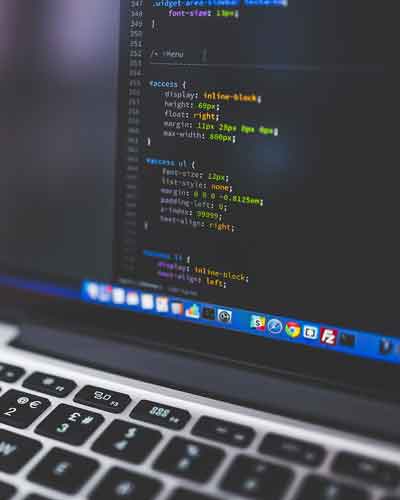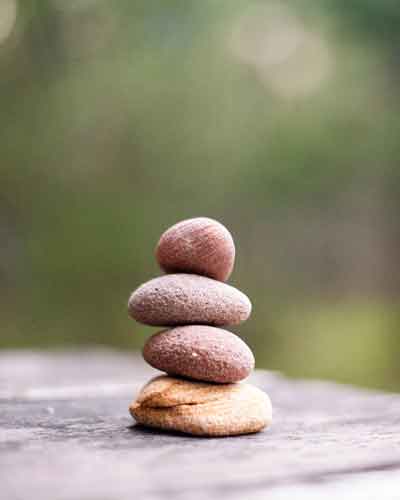We continue with an interesting interview with Boris Venet by Dr Jana Wahl, one of our most prominent advocates of holistic health and a systems approach to health and healing. In the first part of the interview, they talked about the causes of crises, the background and potential of crises, and the processes of action.
In the second part of the interview, Boris describes in more detail the technique of solving problems and removing constraints, points out key moments in times of crisis and reveals the extraordinary opportunity that arises at the moment when the crisis is over.
Finally, it offers advice on how to take preventive action to avoid creating a crisis in the first place.
Dr Jana Wahl: Are you saying that if we look at the crisis in the right way and decide to use the situation as a springboard, there are many opportunities and gifts available to us?

Boris Vene: That’s right. Let me mention one of the great gifts of the crisis, which is the specific relationship to unconscious, ingrained programmes, which we have already touched on a little bit. When we start to resolve our own patterns in normal circumstances, this is one of the hardest nuts to crack. The unconscious programmes are extremely powerful, but on the other hand, they are difficult to get at, because they are there to protect us or to keep us safe.
In the same way that we keep important system files in a special place on our computers to prevent them from being accidentally deleted, our subconscious minds contain special programmes that have a crucial impact on our outlook on life. We needed them urgently when we were children and were not capable of complex and logical thinking, so we did not know how to make the right decisions. These programmes have protected us to survive.
For example, when we touched a hot plate on the stove out of curiosity and found it hot, we learned that it is not a good idea to touch the stove. This programme has been useful to us and has literally protected us from accidents and injuries. And it still does today. Unfortunately, we have learned similar cause-and-effect programmes for things that now no longer support our development. For example, when a parent told us that we wouldn’t get a toy because we weren’t diligent, we may have acquired the belief that we are not good enough to get what we want.
Although this kind of thinking looks very generalised and distorted through the eyes of an adult, this is how children’s brains work: because they are incapable of complex thinking and of taking account of different facts, they take everything that comes to them literally and out of its wider context. This belief, like the earlier doctrine of the hot stove, becomes ingrained in the child’s brain.
Eventually, as a child grows up, beliefs start to play a key role in his or her achievements, as the feeling of not being good enough can guide him or her through life. That’s why he doesn’t deserve nice things, a good salary, nice people by his side and so on. As a result, such a person feels more comfortable in deprivation than in achievement and gifts. If something nice happens to her, she is able to literally sabotage her success and return to an environment that fits in with her deep-rooted beliefs.
If you ask them why they feel they are not good enough, they are unlikely to be able to tell you that this feeling is due to beliefs learned at a young age. But she will be able to give you reasons why this is so, or examples of all the things she has done wrong or inadequate – which, in fact, makes it logical that she does not deserve nice things. But that’s how the adult brain works: the mind looks for cause and effect and comes up with a “logical” answer to every question we ask. For example, if we ask ourselves why we don’t deserve nice things, the mind will bring up all sorts of situations and events in which we may not have done well, when we may not have kept a promise, when we may have let someone down, when we may have been humiliated, and so on.
We all have such programmes inside us that inhibit our personal growth. Unless we consciously change them, they will continue to inertia indefinitely. We will, at least in principle, just continue and repeat family stories. The programmes are passed on from generation to generation, as parents raise their children according to their own beliefs and values. So on the basis of programmes that are anchored in their subconscious.
One of the easiest states in which to change such unconscious beliefs or programmes in a direction that will support our conscious efforts is precisely the altered state of consciousness in times of crisis.

I then resolved my relationships with acquaintances, neighbours, business partners, family members … but above all with myself or my own beliefs, including the “family dowry”. I completely rethought my view on finances and on making money, I changed my values and my personal goals, I changed my view on spirituality and on personal growth, and on and on. I had not done this before with any other technique – and I have tried many – although I have tried and tried hard for about twenty years.
And I would like to point out something else, so that it doesn’t look like I’ve been writing in my notebook all day. I did not stand idly by during the crisis, even when it came to my health. I did everything that made sense to me and that I could do. I helped my body by eating very specifically, by detoxifying it regularly and by giving it enough rest.
But for a very long time, practically several years, I had no feedback on whether my health was getting better or worse. What is more, I often found myself literally on the verge of death, and I did not know whether I would live to see the next morning or not. Sometimes I did not even have the energy to say a few words.
In short, I took care of myself as much as I could in the health field, but I had no guarantee or indicator that my condition was improving. In fact, it was this feeling of uncertainty, helplessness, distraction and ambiguity that kept me in an altered state of consciousness or shock, which was a prerequisite for solving problems in other areas. If I had seen the light at the end of the tunnel, I would probably have changed my outlook on treatment. The crisis would have gone and the door of opportunity would have closed.
What about technology? How did you go about things?
I used very simple tools based on asking questions and giving honest answers. Let me describe one of them. The technique was called “The Outside Observer” in the ancient Mystery School, and it looks like this. We shift our attention to an area of ourselves where we have problems or want change. Then we imagine that everything we are experiencing in that area is happening to someone else we care about; for example, a good friend. In essence, we put that person in our shoes.
First, critically assess what the person is not doing best, or where they are reacting and acting out of fear. (By fear, I mean anything that does not offer maximum support to themselves or their own potential.)
Then we ask ourselves how that friend could have reacted better to the situation and write it down. Of course, this advice applies to us. Although the whole process sounds like something very simple, “nothing new”, and it may seem irrelevant that we imagined a friend instead of ourselves in this situation, there is a key difference that allows us to bounce back.
If we thought about ourselves and then looked for a solution, the answers would almost certainly be different than if we imagined that everything that happens to us is happening in someone else’s life. This is due to a specific perception of the mind: because it operates according to the principle of protection and optimal energy consumption, it resists all major changes, because they just cry out for energy and extra attention.
But the mind defends itself against this, because dealing with the new means that it has to suspend the existing exercise of control. Therefore, it suits the mind best not to take up anything new, because then it has all things under control and does not have to deal with novelty. This state is known as the comfort zone.

That’s why the mind tries hard, with every new idea that calls for change, to offer enough reasons not to go down the new path. I am sure that we have all experienced this when we have decided to make a change. In the excitement and joyful anticipation that accompanies a decision to make a new change, a voice in our head has whispered to us that we will fail; that we will make a fool of ourselves, that this new thing is not really worth the effort we have put in, that we have no guarantee of success and we may lose even what we have now, and so on and so forth. This is a technique by which the mind wants to keep us in our existing comfort zone.
But it is quite different when we imagine someone else in our role. Then the mind does not perceive that a change is imminent, so it allows us to see beyond our own limitations. It offers creative ideas, which are then not sabotaged.
In short, the tool is effective because we can be realistic in our assessment of the situation, because we do not turn on the safety filters when we think of a new route.
Of course, it is up to us to make these ideas a reality. That is why I stressed at the outset that transformation is a decision. If we are not determined and resolute enough, we can only glide apathetically through the crisis, after which everything will remain as it was before.
To use all the tools effectively, it is crucial to maintain awareness after the crisis has passed. If we succeed, we can receive two gifts: firstly, a re-evaluation of key areas of our lives and, as a result, a new attitude towards our desires, goals and values; and secondly, the building of new neural pathways that can be recruited with different content after the crisis. These two issues seem to me to be of the utmost importance. Can you say more about them?
With pleasure. Let me first say a little more about the moment when the crisis is over, or about the re-evaluation of areas of life after the crisis.
The fact is that sooner or later our view of the crisis will change. Most likely, the crisis will pass, or at least lessen in intensity. In some rare cases, it will not go away, but our view of it will change. In short, the altered state of consciousness into which we slipped with the shock of the crisis will pass. Slowly, things will start to fall back into their normal ruts and we will start to do business as usual.
This means that when the crisis is over, the tension within us that we experienced through our worries, fears and distresses during the crisis will not be relieved, but the mind will channel this tension into another area; that is, where we are most receptive to it.
Which areas are these? The ones that seemed important to us in the pre-crisis days, and somehow the crisis put them on the back burner so that we didn’t experience them as energetically powerful and therefore important. After the crisis has passed, the mind will find in them the opportunity to raise them to their previous level of drama. The fact that during the crisis we have found that these matters are of very little practical importance and do not serve us no longer plays any role; I am speaking, of course, if we allow the mind to give these areas, people and events the same importance and charge as before the crisis.
Because there is another option. When the crisis is over – or rather, when the altered state of consciousness is over – there will be a brief moment in which we can choose to keep this new perspective on key areas that we have acquired during the crisis, when we gave things a different meaning.
Unfortunately, this decision, whether to keep the new outlook or to go back to the old ways, cannot be made momentarily and mentally, and often not even consciously. Or, rather, we will not be able to decide one way or the other. The decision will be made as a result of awareness and action in times of crisis and will be based on our focus or understanding of what is happening, our appreciation or respect for this great opportunity and our desire for change or personal growth. As a result, we can live a completely different life after the crisis, or embrace a new outlook on life as part of our new identity, based on a different personality, different aspirations and goals, or a different vision for the future.
But the transition is not easy. Sometimes we take this new approach, and then we hold on to our new outlook on life for a while before it drags us back into established patterns. Well, sometimes we don’t even make any new decision and we are right back where we were before the crisis.

In this case, the future will be like the past: the things that bothered us in the run-up to the crisis will suddenly emerge in all their might and take the lead. They will once again appear to us as insurmountable obstacles as they did before. In practice, we will have the feeling that we have only temporarily sidelined the “important” things during the crisis. Or we will feel that we have neglected them too much during the crisis. Either way, they are here again and we can deal with them in the same way as we did before the crisis.
In short, what we sow in times of crisis, we will reap after the crisis. If we have sufficiently developed and consolidated compassion, gratitude, tolerance and other similar feelings towards key issues in important areas during the crisis, this energy will be able to prevail and take the lead after the crisis. So the nucleus of a decision on how to move forward will have been developed and built up during the crisis, and the moment when the crisis is over will only represent the final act.
If we choose to maintain a new outlook on life, it will take some effort. However, this is the most useful and, at that moment, the most important activity we should engage in after the crisis. There is no greater potential than to ride the wave of opportunity that is available to us at that time.
Thank you, that was really comprehensive. Can you explain the other thing, which is getting in touch with the inner part of yourself, which happens in times of great crisis?
Of course. First of all, let us remember what happens in times of great crisis: all avenues are closed, we have exhausted our options, we can no longer see a way out, and we have no idea what else we can do or where to turn for help. So we cannot achieve anything by directing our energies outside ourselves or by the classical approaches and solutions offered by the mind.
So let’s do the only thing left to do – disconnect from our environment, from other people and from the search for opportunities, and turn inwards. We gather the scattered energy we have been sending out into the world around us at some point within ourselves. On the one hand, we seek a safe haven; on the other hand, we want to get away, at least temporarily, from the hustle and bustle of worries, fears, cramps and distresses that we experience practically all the time; and on the other hand, we seek solace and some imaginary hope or small ray of light to illuminate our situation.
In short, when we turn inwards, we do not look for new ideas and opportunities to
solution, but through surrender and surrender we reveal our vulnerable and fragile side, which is the only one capable of surrender and surrender. The ego takes a back seat and the heart opens. We are ready to look at ourselves from a different angle, to see and to admit to ourselves what we have found difficult or what we have resisted or avoided. We no longer pretend and lie to ourselves about how important we are, what we are capable of doing and so on, but just helplessly bare ourselves.
Usually, we do not do this deliberately, but the situation leads us to do it. So we are not even aware of what we are doing when we concentrate energy in one point through surrender, while at the same time taking energy from everything else.
With limited action, we slowly build new neural pathways in the brain. What initially looks like a chaotic and stychic action slowly takes shape and order. The repetitive search for contact or connection with some imaginary part of ourselves, to which we direct a request or perhaps a prayer through faith and hope, becomes a repetitive and consistent activity. Therefore, it becomes close to us. It becomes easier and easier to fall into and maintain this state, and we perceive the times of the day when we do so as positive or inspiring moments.
It all takes place in an unconditional energy that is not based on any specific desires or needs, because we cannot even build on anything. We don’t want to prove anything, we don’t judge, we don’t choose a path to a solution, no one point of view prevails… We can only be honest, open and ready to accept whatever comes our way. The energies or feelings that accompany this action are faith, hope and a plea for a solution.
Now let’s see what happens when the crisis goes away. This habit of carrying out the process of getting in touch with some inner part of ourselves remains, at least for a while, because we have built up some pretty strong neural pathways. But it will slowly fade away if we do not make a conscious decision to continue nurturing it. Similarly to what we have already said about a new perspective on important areas of life, in this situation we will be faced with two choices: whether to maintain this contact with the inner part of ourselves, or not. But here the decision is more mental or more based on our choice.

If we decide to keep in touch, we only need to do one thing – change the message or energy that accompanied the action. In times of crisis, the content of the action or the energy was based on hope and the desire to help. When the crisis is over, we can express gratitude, faith and trust in a happy ending with the same intensity, consistency and commitment through this “channel” or through this contact; a kind of recognition that a solution is often available even when we are not mentally working towards it or forcing people to react in the way we have imagined or in the way that would be best for us.
We could also say that we are no longer basing our view so much on ego, or on a mental approach, or even on raping a situation in order to make it unfold towards a specific solution, but we are more willing to let go. We trust that things can be resolved even without our physical, mental and emotional involvement. Because we believe in a happy ending, we act more relaxed and calm.
In the spirit of these insights, we then express our energy or beliefs as we connect with our inner essence. In fact, this act – some will call it meditation – is an affirmation of faith in a happy ending and trust in the harmony of the Universe.
The more often, the more consistently, the more disciplined and the more devotedly we express these pleasant thoughts of trust in Life, the more our view of the world, of ourselves and of others changes. If we were to generalise the matter a little, we could say that our goals are becoming more vague, both in content and in time. We are more concerned with the energy or the feelings that things are happening against than with the final solution itself. We realise that a happy life is available to us here and now, or it will not start to unfold once we have achieved a certain goal.
With this new tool, which brings us great personal power and confidence, we can now definitively resolve the remaining important areas and sometimes also the crisis area.
Clearly, the crisis presents us with several opportunities to change key areas of our lives, principles and orientations. Could it be said that the purpose of the crisis is, in fact, to re-evaluate life?
You can. But I would like to make a special mention of something that we may not have emphasised strongly enough. When we think of the gifts of the crisis, we tend to think first of the various problems that the crisis helps us to see in a new light. For example, if we were too preoccupied with something before the crisis, we will invest less energy in that area after the crisis. In addition, in a similar way, a crisis can also re-evaluate our positive aspirations; for example, high-flying goals.
Many of us invest a lot of energy, time and money in something that brings us momentary emotional satisfaction, gives us a sense of security, reinforces our identity, emphasises our uniqueness or expressiveness, and so on. In other words, we invest a lot of energy in comparing, proving and validating ourselves to others and to ourselves. Such goals do not serve our true purpose or our true happiness.
A major crisis also loosens these ties and the perception of priorities changes dramatically. Desires for a new job … a new car … a higher salary … better school performance for the children … travel … a more youthful appearance and so on lose their charge. In times of severe crisis or personal hardship, such things will seem almost irrelevant. As before, with problems, we can view these kinds of situations in a much more life-like way and through the prism of real facts.
It is true, however, that a major crisis often automatically reshapes our system of values or priorities in life, so some things may fall away after a crisis and be replaced by a more heartfelt outlook. For example, we value our time and energy much more, we no longer take things for granted, we stop being bothered by other people’s actions, we allow them more freedom, and so on.
Does this mean that we now just have to wait for the big crisis? Or even wish for it or help to create it?

No, it doesn’t have to be. As long as we are not in crisis, another tool should be used: learning and building awareness of what the crisis brings us, and making a clear decision on how we will act in times of crisis. If we have sufficiently developed our awareness in this so-called “in-between time” and have prepared the tools we will need to solve problems in a crisis, we will be ready for the crisis and will be able to start using its potential immediately.
Another thing we can do while we are not in crisis is to focus on our true, heartfelt desires that inspire us. Because unpleasant events carry such a strong emotional or energetic charge that we cannot compete with the weak charge of a desire. Therefore, the emotions that accompany unpleasant thoughts and events outweigh those that accompany desires. Everyone has experienced this: when we are experiencing a problem, our worries and our search for a solution are deeply absorbed. When we think of a joyful goal, it seems pale, distant and almost irrelevant. We say to ourselves, “There will be time for that later, right now I have to deal with what is bothering me first.”
When we are not experiencing such strong charges of unpleasant emotions, we can build up a strong enough energy of desire that it prevails for the moment. This means that we will feel the strong desire or goal and the joyful energy that is generated at the thought of it so strongly that it can overwhelm us. This is very important, because in a state of so-called high vibration, or the expression of this joyful energy, our outlook on life is completely different: we are more optimistic, more courageous, more able to stand up for ourselves, we have a better self-image and greater self-confidence, we are more tolerant of others and also of our own faults and shortcomings, we are less disturbed by the various crises in the world, and so on. And from a health point of view, this is also ideal, because the body functions better.
Is there anything else important that we haven’t said … or can we just conclude by inviting them to read the book “The Big Ugly Crisis“, which explains the tools and procedures you have used to deal with various problems and situations?
Let me start by expressing my great satisfaction that these tools and procedures are systematically organised and written down and are available to me and to others who want to take advantage of the growth potential that crises bring.
Of course, I recommend everyone to read the book. I personally know of no other manual or programme that guides the seeker of truth so precisely and without a hair on the tongue through problem-solving while experiencing a crisis at the same time.
Of course, there is only one Truth, and all of us who have come to know it are talking about the same thing: We need to open our hearts, to awaken courage and to find the strength within ourselves for a new path. To put ourselves first and trust that Life will reward us for this choice. Then, with courage, to throw away everything that does not serve us. In whatever way we can. Virtually everyone who has walked this path has found new inspiration, new meaning and a new life.
